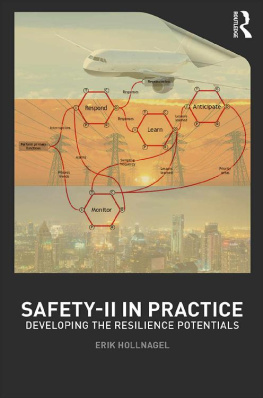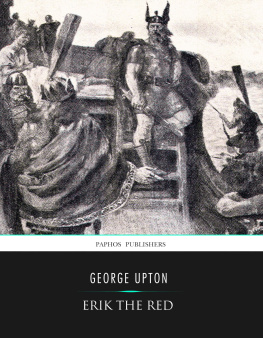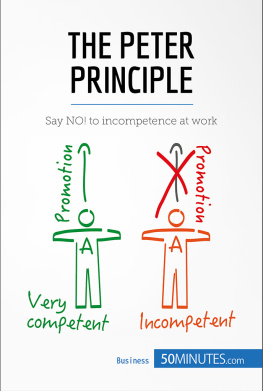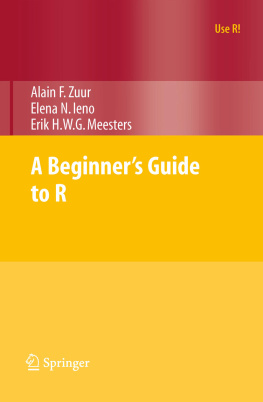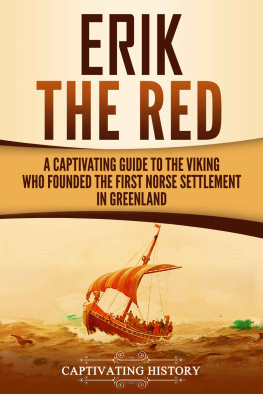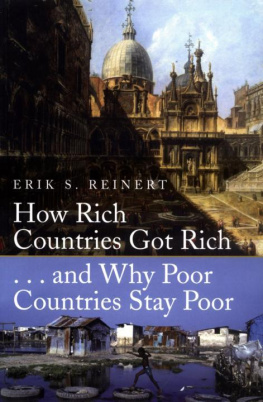Erik Hollnagel - The ETTO Principle: Efficiency-Thoroughness Trade-Off
Here you can read online Erik Hollnagel - The ETTO Principle: Efficiency-Thoroughness Trade-Off full text of the book (entire story) in english for free. Download pdf and epub, get meaning, cover and reviews about this ebook. year: 2009, publisher: Ashgate, genre: Romance novel. Description of the work, (preface) as well as reviews are available. Best literature library LitArk.com created for fans of good reading and offers a wide selection of genres:
Romance novel
Science fiction
Adventure
Detective
Science
History
Home and family
Prose
Art
Politics
Computer
Non-fiction
Religion
Business
Children
Humor
Choose a favorite category and find really read worthwhile books. Enjoy immersion in the world of imagination, feel the emotions of the characters or learn something new for yourself, make an fascinating discovery.

- Book:The ETTO Principle: Efficiency-Thoroughness Trade-Off
- Author:
- Publisher:Ashgate
- Genre:
- Year:2009
- Rating:4 / 5
- Favourites:Add to favourites
- Your mark:
- 80
- 1
- 2
- 3
- 4
- 5
The ETTO Principle: Efficiency-Thoroughness Trade-Off: summary, description and annotation
We offer to read an annotation, description, summary or preface (depends on what the author of the book "The ETTO Principle: Efficiency-Thoroughness Trade-Off" wrote himself). If you haven't found the necessary information about the book — write in the comments, we will try to find it.
The ETTO Principle: Efficiency-Thoroughness Trade-Off — read online for free the complete book (whole text) full work
Below is the text of the book, divided by pages. System saving the place of the last page read, allows you to conveniently read the book "The ETTO Principle: Efficiency-Thoroughness Trade-Off" online for free, without having to search again every time where you left off. Put a bookmark, and you can go to the page where you finished reading at any time.
Font size:
Interval:
Bookmark:
THE ETTO PRINCIPLE: EFFICIENCY-THOROUGHNESS TRADE-OFF
Why Things That Go Right Sometimes Go Wrong
ERIK HOLLNAGEL
MINES ParisTech, France
ASHGATE
Erik Hollnagel 2009
All rights reserved. No part of this publication may be reproduced, stored in a retrieval system or transmitted in any form or by any means, electronic, mechanical, photocopying, recording or otherwise without the prior permission of the publisher.
Erik Hollnagel has asserted his moral right under the Copyright, Designs and Patents Act, 1988, to be identified as the author of this work.
Published by
Ashgate Publishing Limited
Wey Court East
Union Road
Farnham
Surrey, GU9 7PT
England
Ashgate Publishing Company
Suite 420
101 Cherry Street
Burlington
VT 05401-4405
USA
www.ashgate.com
British Library Cataloguing in Publication Data
Hollnagel, Erik, 1941
The ETTO Principle-- efficiency-thoroughness trade-off: why things that go right sometimes go wrong.
1. Industrial safety--Psychological aspects. 2. Human engineering. I. Title
620.82-dc22
Library of Congress Cataloging-in-Publication Data
Hollnagel, Erik, 1941
The ETTO principle : efficiency-thoroughness trade-off : why things that go right sometimes go wrong / by Erik Hollnagel.
p. cm.
Includes index.
ISBN 978-0-7546-7678-2 (pbk) -- ISBN 978-0-7546-7677-5 (hardcover) 1. Performance technology. 2. Performance--Psychological aspects. 3. Industrial accidents. I. Title.
HF5549.5.P37.H65 2009
658.314--dc22
2009005301
ISBN: 978-0-7546-7677-5 (hbk)
ISBN: 978-0-7546-7678-2 (pbk)
ISBN: 978-1-4094-8599-5 (ebk-ePUB)

Printed and bound in Great Britain by the MPG Books Ltd, Bodmin, Cornwall.
What is arguably one of the most influential papers in contemporary psychology starts rather tantalisingly as follows:
My problem is that I have been persecuted by an integer. For seven years this number has followed me around, has intruded in my most private data, and has assaulted me from the pages of our most public journals. The persistence with which this number plagues me is far more than a random accident. Either there really is something unusual about the number or else I am suffering from delusions of persecution.
(The paper in question is George Millers The Magical Number Seven, Plus or Minus Two: Some Limits on Our Capacity for Processing Information published in 1956. This paper introduced to the general public the notion of limitations in human short-term memory and attention, and proposed as quantification an integer that since then has become legendary but also widely disputed.)
My problem is not that I am persecuted by an integer, but rather that a certain idea has stuck in my mind, leading me to see examples of it everywhere. That in itself is not so strange. We all know that the moment we start to think of something or buy something such as a new car or a new gadget then we also begin to notice instances of it everywhere. This is what psychologists call the phenomenon of selective attention, i.e., that the way we look at the world is heavily influenced, or determined, by our expectations and preconceived ideas. The phenomenon is aptly captured by the adage that if your only tool is a hammer, then everything looks like a nail (attributed to the American psychologist Abraham Maslow, but also said to be a Japanese proverb). In the world of accident investigation it has been expressed as the What-You-Look-For-Is-What-You-Find or WYLFIWYF principle, to be described in which we do not expect, and that which we are otherwise unwilling to see.
My problem is that since I started to think about the efficiency-thoroughness trade-off (ETTO) principle as a way to make sense out of what people do, I seem to find examples of ETTO everywhere. This is not something that I do intentionally, but the efficiency-thoroughness trade-off principle is seemingly ubiquitous. Indeed, the obviousness of the phenomenon is so strong that reason seems to demand that it should be questioned. But try as I might to eradicate it, it still persists. Writing this book can therefore, in a sense, be seen as a way to get rid of the ETTO demon, or at least to pass it on to someone else, like the Monkeys Paw. If that does not succeed, then I stand corrected and there is no such thing as the ETTO principle. But if it succeeds, then it may have significant consequences for how we perceive, analyse and understand human and organisational performance in general, and how we view the role that humans play for safety in particular.
Yet this book does not really describe anything new, in the intellectual sense that no one has ever thought of it before. As the examples, large and small, throughout the book will show, people practitioners and experts alike have for many years been thinking along the same lines and have expressed it in ways that are not too dissimilar from what is done here. The present text consequently does not and cannot pretend to be an intellectual breakthrough or even an innovation. It is rather a way of drawing together the experience from many different fields and summarise a wide collection of findings coherently, with a view to their practical consequences and their practical applications.
Everything around us changes and it often changes so rapidly that we cannot comfortably cope with it. In consequence of that, the descriptions that we make and use are never complete. This means that neither the situations we are in, nor future situations, can be completely described. There is therefore always some uncertainty, and because of the uncertainty there is also risk. If something is going to happen with certainty or not going to happen with certainty, which amounts to the same thing then there is no risk. (While philosophers may argue about whether something ever can be absolutely certain or known with absolute certainty, the rest of us can normally distinguish between what is certain and what is uncertain on a purely practical basis.) But wherever there is risk, there is also a need to understand the risk. Although people and societies have tried to protect themselves against hazards and risks at least as far back as The Code of Hammurabi, the consequences of the rampant technological developments that we have seen since the middle of the 20th century according to the Western way of counting, of course have made this more necessary than ever.
Regardless of whether risk is defined from an engineering, a financial, a statistical, an information theoretical, a business, or a psychological perspective, the concept of uncertainty is a necessary part. This has of course been so at all times, but it is a quality or a characteristic that has become more important as the systems we depend on and the societies we live in have become more complex. Two hundred years ago, to take an arbitrary number, countries only needed to care about their nearest neighbours or their coalition partners, and were largely independent of the rest of the world. The same was the situation for institutions, companies, societies, and individuals at the appropriate scale. Neither financial nor industrial markets were tightly coupled and events developed at a far slower pace. Today the situation is radically different, basically because we have been caught in a self-reinforcing cycle of technology-driven development. In 1984, the sociologist Charles Perrow, who will be mentioned several times in these pages, observed that on the whole, we have complex systems because we dont know how to produce the output through linear systems. The situation has not become any simpler in the years since then. Because there nearly always is too little time and too much information relative to what needs to be done, it is inevitable that what we do will be a compromise between what we
Next pageFont size:
Interval:
Bookmark:
Similar books «The ETTO Principle: Efficiency-Thoroughness Trade-Off»
Look at similar books to The ETTO Principle: Efficiency-Thoroughness Trade-Off. We have selected literature similar in name and meaning in the hope of providing readers with more options to find new, interesting, not yet read works.
Discussion, reviews of the book The ETTO Principle: Efficiency-Thoroughness Trade-Off and just readers' own opinions. Leave your comments, write what you think about the work, its meaning or the main characters. Specify what exactly you liked and what you didn't like, and why you think so.

